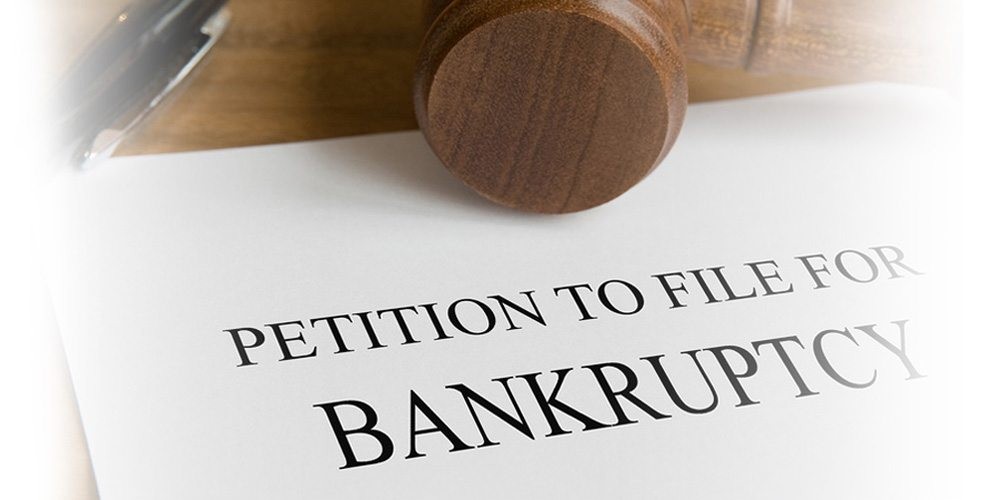Events of the last several years – from pandemics to international armed conflicts – have turned the economies upside-down in ways that no one foresaw. Chiefly among the topsy-turvy turmoil for consumers have been the supply of homes, vehicles, and other consumer goods. Supply chain squeezes and other shortages, when met with the same or increased demand has equated to higher prices, skyrocketing inflation, and over-valuations perhaps not seen since the “Great Recession.” We live this reality every day – houses, cars, groceries, and fuel are exorbitantly expensive. While wages are on a steady rise, they do not keep up to the inflation in prices and many find themselves in dire straits. Many are asking themselves if turning to bankruptcy is a valid option. Unequivocally, yes. Bankruptcy is a valid option that in many circumstances may be the smartest decision among them all. Understanding how bankruptcy can help amid the current economic turbulence begins with understanding some important protections afforded to debtors. This article seeks to review some of these important protections and how they stand to protect you and your property in the currently adverse economic climate.
The first important debtor protection is available to debtors in Chapter 7 or Chapter 13 and is known as “Lien Avoidance” (see 11 U.S.C. § 522(f)).
Lien Avoidance is an immensely important debtor protection that addresses involuntary judicial liens against your home. In a previous article, titled “My Creditors Are Suing Me! What can I do?”, I wrote about how involuntary judicial liens are created automatically when a judgment is entered against you. These lawsuits and their judgments commonly arise when we have an unsecured debt, like a credit card or a personal loan, and life circumstances make it impossible to pay the debt. The creditor will sue to recover on the debt and the judgment that is entered becomes a lien against your real estate. The same market forces that have created more equity in your home because of skyrocketing home values also benefit judgment creditors in this way. Where there is more equity in a home, the creditor who achieves a judgment is better able to secure that judgment against your home. Bankruptcy may step in to save the day by removing the lien from your home and treating the debt as unsecured and subject to discharge. This relief is only available through filing a separate motion as a part of your bankruptcy case, so you should discuss the option with a qualified attorney.
The second important debtor protection in Chapter 13 and is known as “Lien Stripping” (see 11 U.S.C. § 1322(b)(2)).
Lien Stripping is also an immensely important debtor protection that addresses voluntary liens against your home or personal property. Common examples include second mortgages, Home Equity Loans (HELOs), and Home Equity Lines of Credit (HELOCs). What they have in common is that you, as the borrower, seek to borrow money and volunteer the equity in your home or other personal property as collateral to secure that loan. The same market forces that have created more equity in your home because of skyrocketing home values benefits your creditors here as well. With higher home valuations, the creditor who lends money and secures the debt against in the equity in your property is far less likely to be under-secured. When a creditor is under-secured, bankruptcy may again step in to save the day. Mechanically, lien stripping is an option when the equity value in your property that secures a loan is insufficient to secure the loan and allows you to treat all or part of the debt as unsecured and subject to discharge. One caveat is that if the debt is secured by your home, it must be completely under-secured – even one penny of security is enough to protect a creditor from a lien stripping. This relief is also only available through filing a separate motion as a part of your bankruptcy case, so you should discuss the option with a qualified attorney.
The third important debtor protection is available to debtors in Chapter 13 and is known as a “Cram-Down” (see 11 U.S.C. § 1325(a)(5)).
Cram-Downs are also immensely important debtor protections that address voluntary liens against your vehicle(s). Cram-Downs arise in two varieties – those in which a lender takes a Purchase-Money Security Interest (PMSI) and those without PMSI. The latter are commonly what I refer to as “Title Loans” whereby a debtor seeks a personal loan and the creditor demands a security interest in the title to a vehicle. The same market forces that have created more equity in your vehicles because of short supply of automobiles benefits your creditors here as well. Generally, vehicle values depreciate quickly – often losing significant value the moment we drive away from the dealership. Bankruptcy may again step in to save the day, provided certain conditions are met. Mechanically, a Cram-Down operates differently depending on the variety. If your vehicle loan is PMSI, you must have purchased the vehicle at least 910 days prior to filing your bankruptcy case. If your vehicle is not PMSI, such as a title loan, you must have taken the loan more than one year prior to filing. In both instances, a Cram-Down allows you to sever the portion of the debt secured by equity in the property from the under-secured portion of the debt and subject it to discharge. The practical implication is that you may end up paying only the value of the property rather than the total amount of the loan balance due. This relief is also only available through filing a separate motion as a part of your bankruptcy case, so you should discuss the option with a qualified attorney. With these important debtor protections firmly in mind, I turn to discussing the implications of the current supply chain squeezes and market forces on would-be bankruptcy filers.
As discussed above, the economic outlook is topsy-turvy and perhaps feels a bit alien to many of us. If history is any guide, it is temporary and economies will course-correct. In the interim time, these economic forces impact us all, whether or not we are contemplating filing for bankruptcy protection. If you are considering filing for bankruptcy protection, take note of some important considerations. The increased valuations on homes may make Lien Avoidance and Lien Stripping more difficult, though definitely not impossible, because of the increased equity value available in those homes. Similarly, increased equity value in vehicles and personal property makes Cram-Downs more difficulty, though definitely not impossible, because of the increased equity available in those vehicles. Given all these considerations, is bankruptcy still the right answer? Great question.
It depends. Every situation is unique and no one answer will meet every situation. The decision whether or not to file for bankruptcy protection is always a personal decision that is wholly dependent upon the individual circumstances of each case. Bankruptcy is an immensely powerful tool that can accomplish many goals when you work with a qualified attorney. Examples abound:
- Are you facing a foreclosure on your home or a repossession of your vehicle? Those are both fantastic reasons to file and a qualified attorney will review for potential Lien Avoidance, Lien Stripping, and Cram-Down options.
- Have you been served with a lawsuit by a creditor or, alternatively, has a creditor achieved a judgment against you? Both are fantastic reasons to file for bankruptcy protection and a qualified attorney will review for Lien Avoidance options to rid you of the debt and allow you to keep your property.
- Are you in over your head and want to establish a payment plan to unburden yourself of debts with creditor(s) who are unwilling to negotiate. Another fantastic reason to file a bankruptcy case and a qualified attorney will assist you with structuring an affordable payment plan.
- Do you have property that secures a debt that you can no longer afford, no longer want, or simply want to walk away from? Another fantastic reason to file a bankruptcy case and a qualified attorney will advise and assist you through the process.
Once again, history tells us that the current economic instability will course-correct in due time. While homes, vehicles, and personal property are seeing all-time high valuations, prices are skyrocketing and wages are doing their best to keep pace, there will always be honest but unfortunate folks in need of bankruptcy protection. Determining if bankruptcy is the right choice for you is a simple, cost-free, and painless process. The experienced, proven, and trusted bankruptcy attorneys at Mooney Law stand ready to assist you and answer your questions. Consultations for bankruptcy are always free at Mooney Law. To schedule a FREE consultation, call us today at 717-632-4656 or 717-200-HELP. You can also visit the firm website at https://www.mooney4law.com.



